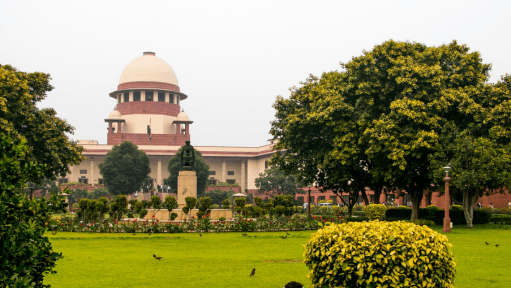
Wearing Black Coats Unsafe for Lawyers: SC Petition Seeks Dress Code Relaxation
Petitioner argues that the required black coats worsen lawyers' discomfort and jeopardise their health
Advocate Shailendra Mani Tripathi has lodged a writ petition with the Supreme Court, urging amendments to the regulations and the Advocates Act of 1961. The petition seeks to exempt legal practitioners from the customary requirement of wearing black coats and gowns, particularly during the intense heat of summer.
Tripathi contends that enforcing the wearing of black attire in hot weather poses significant safety risks to lawyers. The petitioner, represented by a consortium of legal experts, argues that the obligatory attire of black coats exacerbates the discomfort experienced by legal professionals, potentially jeopardising their health and well-being.
As temperatures escalate, the attire, symbolic of the legal profession's decorum, transforms from a symbol of dignity to a potential hazard, exposing lawyers to the perils of heat exhaustion and dehydration.
The petition seeks a directive to the State Bar Councils to determine the 'months of prevailing summer' for each state to exempt the wearing of the black coat and gown during those months.
The petitioner also seeks the establishment of a committee of medical experts to study how wearing warm clothes in summer affects the health and quality of work for advocates and to suggest recommendations accordingly.
The petitioner emphasised that the dress code of black coats and gowns originated from British tradition, but the Advocates Act of 1961 has failed to consider India's climatic conditions.
Furthermore, the plea proposes alternative measures to ensure the preservation of professional decorum while mitigating the risks associated with oppressive heat waves. Suggestions include allowing advocates to opt for lighter, breathable fabrics or providing exemptions from the mandatory wearing of black coats during periods of extreme heat.
Indian capital New Delhi recently hit a record-breaking 52.3 degrees Celsius. With the rising temperatures in the country, wearing a gown and coat may lead to excess absorption of heat and pose serious health risks. This not only makes work conditions unsafe and uncomfortable but also violates the right to a safe workplace.
The plea serves as a poignant reminder of the judiciary's duty to safeguard the interests of its officers of the court, whose invaluable contributions underpin the administration of justice. It underscores the need for a nuanced and empathetic approach towards dress regulations, one that strikes a delicate balance between tradition and practicality.
For any enquiries or information, contact ask@tlr.ae or call us on +971 52 644 3004. Follow The Law Reporters on WhatsApp Channels.